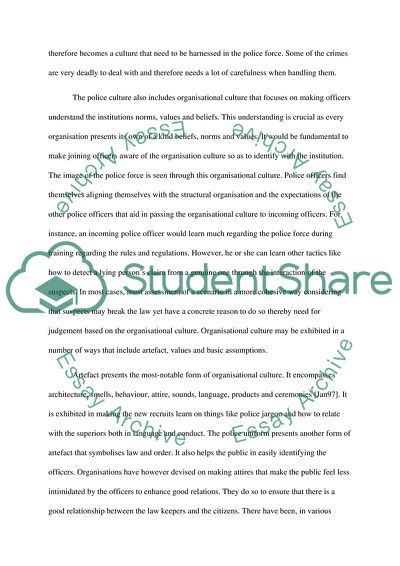Cite this document
(Changing Police Culture: Policing in a Multicultural Society Essay, n.d.)
Changing Police Culture: Policing in a Multicultural Society Essay. Retrieved from https://studentshare.org/sociology/1836973-why-is-the-culture-of-rank-and-file-police-offers-important-for-understanding-police-work-and-why-has-police-culture-been-so-difficult-to-reform
Changing Police Culture: Policing in a Multicultural Society Essay. Retrieved from https://studentshare.org/sociology/1836973-why-is-the-culture-of-rank-and-file-police-offers-important-for-understanding-police-work-and-why-has-police-culture-been-so-difficult-to-reform
(Changing Police Culture: Policing in a Multicultural Society Essay)
Changing Police Culture: Policing in a Multicultural Society Essay. https://studentshare.org/sociology/1836973-why-is-the-culture-of-rank-and-file-police-offers-important-for-understanding-police-work-and-why-has-police-culture-been-so-difficult-to-reform.
Changing Police Culture: Policing in a Multicultural Society Essay. https://studentshare.org/sociology/1836973-why-is-the-culture-of-rank-and-file-police-offers-important-for-understanding-police-work-and-why-has-police-culture-been-so-difficult-to-reform.
“Changing Police Culture: Policing in a Multicultural Society Essay”, n.d. https://studentshare.org/sociology/1836973-why-is-the-culture-of-rank-and-file-police-offers-important-for-understanding-police-work-and-why-has-police-culture-been-so-difficult-to-reform.


